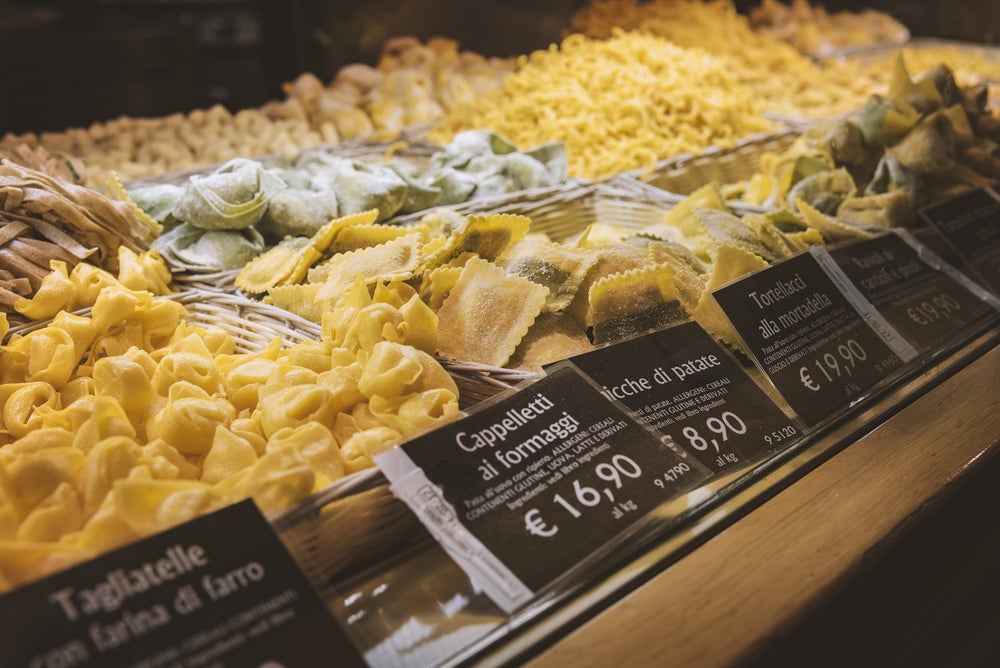
The Italian government has held a crisis meeting to address the sharp increase in pasta prices, which has sparked a heated debate in the country.
Adolfo Urso, the business enterprise minister, called for the meeting of a newly formed commission to discuss the matter.

Discover B2B Marketing That Performs
Combine business intelligence and editorial excellence to reach engaged professionals across 36 leading media platforms.
The Ministry of Enterprises and Made in Italy confirmed the meeting, with an official speaking anonymously about government affairs. Local media cited the ministry’s report, stating that pasta prices had risen by 17.5% year-over-year in March.
Pasta price surge exceeds consumer inflation, consumer groups allege
The surge in pasta prices, exceeding Italy’s consumer price inflation of 8.1% in March, according to the European Central Bank, has raised concerns among consumer groups.
They have accused producers of engaging in speculation and have filed an official complaint, urging authorities to investigate.
On the other hand, producers argue that various factors, including higher energy costs, disruptions in the supply chain and inflation, have led to increased production costs.

US Tariffs are shifting - will you react or anticipate?
Don’t let policy changes catch you off guard. Stay proactive with real-time data and expert analysis.
By GlobalDataAs a result, they claim they are compelled to raise pasta prices, considering it is a staple in the Italian diet.
Authorities pledge price monitoring to safeguard consumers
Authorities have pledged to continue monitoring prices to safeguard consumers’ interests.
Despite the price hike, pasta remains relatively inexpensive, with an average cost of around $2 per box. Nevertheless, any dispute related to pasta in Italy garners significant attention due to its close association with national identity.
Crisis meeting sparks humorous social media reactions
Social media users humorously responded to the crisis meeting and expressed concern about the rising prices.
Italian pasta, produced from durum wheat, has experienced a 30% price decrease since last year, according to Coldiretti, Italy’s largest agricultural body.
They argue that the price surge seems unwarranted since pasta production only requires water to be added to the wheat.
However, pasta producers point to rising production costs, including energy, packaging, and logistics expenses, as contributing factors. The aftershocks of the conflict in Ukraine last year, which affected commodity markets, have also impacted pasta prices.
Government highlights pasta’s cultural significance in Italy
While the economic impact of the price increase may be limited, given the relatively low cost of pasta, the government’s response highlights pasta’s cultural and emotional significance in Italy.
The crisis meeting signifies the government’s interest in citizens’ quality of life and aligns with its focus on food quality and sovereignty. Outlook and Previous Allegations of Price Fixing Despite the current situation, some pasta producers believe prices will decline by September.
However, this isn’t the first time the pasta industry has faced scrutiny. In 2009, top pasta makers were investigated for price-fixing, resulting in fines totalling nearly $18m.





